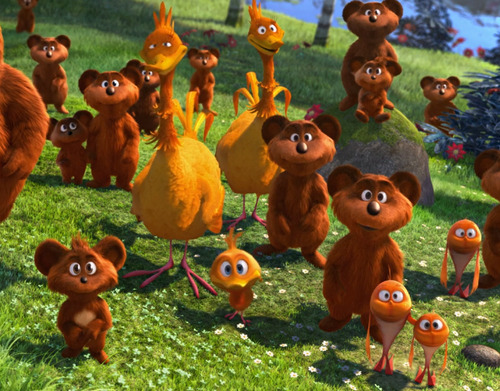 |
| Wait, but what? |
 |
| I don't like it. |
Cue the battle for the front yard food forest.
Before the California drought hit critical levels my husband was adamantly opposed to food in the front yard. His beautiful carpet of suburban green grass was a point of pride. We watered three times a week to the tune of 2000 gallons of water and fertilized and yes, fed and killed crabgrass and dandelions with Roundup Weed and Feed. We didn't know how bad Roundup was then but we definitely knew we didn't want food growing where pesticides and herbicides had been sprayed.
 |
| What care I for lands and titles. Forsooth, this choco-vanilla swirl is the bomb. |
"You want scary mommy stopping by to pick kale? Maybe she'll bring her juicer and plug into our power grid while she's here."
Ugh. Point taken.
But at this point I had read about "Farm City" by Novella Carpenter and was fascinated by the idea that she had not just tried to address the fresh food desert in her neighborhood of urban Oakland with a food truck or accessibility to fresh fruits and vegetables in stores but that she had created a food forest in an abandoned lot, and left the gates open to anyone who wandered by and wanted to pull a carrot or a handful of greens. It was beautiful, seductive, the idea of an urban Garden of Eden that could feed and nourish the nutrient-starved masses that abutted its flowering borders. It was like the food forest playgrounds of Portland where everyone was welcome, where everyone could forage as we once had, where the land could provide in abundance and we could once more be connected to the gospel of soil. I had visions of my children climbing the apple trees like Scout and Huck Finn and the Boxcar Children, the neighborhood kids picking blackberries as they walked by and finding themselves less hungry for refined sugar, the adults coming for armfuls of squash and a pumpkin at Halloween.
 |
| Tell me more. Is there a chocolate waterfall in this fantasy? |
Wow, it sounds so benevolent, doesn't it? Until I found those tomatoes missing this morning and partially lost my mind.
See, San Diego is starting to become more sustainable and urban garden-friendly, but not having the water resources of Portland and northern California, yards around here are more likely to hold drought tolerant plants, fake plastic grass, or rock gardens. Although the drought has made people more tolerant of each other's landscaping choices, I still feel self-conscious about our front yard. Our dead grass apocalypse-landscape lawn was one of many last year, when the drought was in the news every day, but now I've started to see lush green lawns again, despite the fact that this year's El Nino storms had almost no effect on reducing drought conditions in San Diego and 2016 promises a La Nina storm system, which will bring drier than normal conditions. Now that the neighborhood has started to perk up, our food forest is an eyesore. The sunflowers I planted for the pollinators (Seen a Bee Lately?), massive, with heads 18" across and standing about 12' high, are wilting as they set their seeds--and I want those seeds for next year's planting and for the chickens. Trouble is, they have to sit in the sun and finish ripening on the stalk, with their droopy brown leaves dangling from their amazonian stalks and the petals curled and dried out around the heads. The pumpkin vines started fading as the pumpkin crop ripened on the vine; the huge leaves and sprawling green vines quickly turned from gorgeous expanse of verdant abundance to dead and dry and brown forest of death--which has to stay while the last of the pumpkins finish turning orange. The lettuce has bolted and turned to huge brown obelisks as the seeds set. It's the end of the season and I can't wait to rip everything out. I feel like everyone's watching me water and thinking, "This is what she's making out of all those gallons of water? Basically an abandoned lot?"
And you came in the night and stole my tomatoes.
Why not the tomatillos? I have more tomatillos and serrano peppers than I could ever eat or turn into salsa. There's kale in abundance and butter lettuce literally growing in the lawn. There's green onions! Why the tomatoes. I haven't even HAD a tomato this year yet. Yesterday I went to the grocery store, saw the roma tomatoes on the display and thought to myself smugly, nope. Not buying any of those because I have my own and they'll be ready any day now.
 |
| Dammit. |
I was such a benevolent person before I had to put in any work for my imaginary food forest. No one else came and tilled the ground by hand or saved every scrap of compostable garbage for months to make compost or bought organic vegetable fertilizer. No one else got up early every morning to help me water or hauled buckets of conserved shower water down to the garden to feed those tomatoes. No one else picked bugs off by hand, or wrestled with ethical questions: I have chickens to provide manure for my garden--when they stop laying eggs is that manure worth what I feed them or do I cull them to make room for new ones? No one else lives with the eyesore in the hopes that what they're doing is making a difference...oh.
Once I actually read Novella Carpenter's "Farm City" I found out her benevolence was taxed too, when she waited for months for a prized heirloom varietal of watermelon she'd been nurturing to ripen. She woke one morning, looking forward to checking to see if her baby was ready, and found it had been picked during the night. She railed angrily and was furious with her neighbors or whatever wandering stranger had decided to come into her garden and take the very best thing available, the one thing she'd wanted only for herself.
Ultimately Novella made peace with the watermelon thief. How could she not? She'd mentally declared the garden open to all the happy strangers who wandered in to take carrots, onions, and plums. She couldn't in good conscience say to herself "you're welcome to everything here, but only after I've gone through and taken what I want".
I don't know if I'm there yet.
 |
| Ugh. GOD. We all love each other. I GET IT. |
The book "The $64 Tomato" really addresses the struggle we food gardeners have to address--food you grow yourself is not free. If you add up the cost of water (did I mention? State water authorities in California suddenly realized last year that with consumers doing the responsible thing and cutting back on their water by 25% to defray the water shortages in the state, they also were going to be losing 25% of their business--so they raised prices to compensate. Now we pay the same or more for using 25% less water), vegetable fertilizer (do you live in perfectly fertile farm land that's been wandered by free range cattle for decades, dropping manure like little gold patties all over the place just waiting for tomato plants to sprout? Please call me. That's incredibly sexy), seeds/plants, and compost to build the soil back up for the next season, backyard tomatoes are not free. If you plant things like blueberries that really don't survive and flourish except in an acidic soil, and you have to amend your soil with store-bought amendments (I don't have elemental sulfate in my medicine cabinet) constantly, those costs go up even further. I will never again take for granted those bags of vegetables or citrus fruits people leave on the table in the break room.
Double sigh.
Double sigh.
But would I give up my front yard foot forest, with the sun and the space, the birds that are nesting in my giant sunflowers, the Monarch butterflies I keep finding on my nasturtiums, the abundant basil patch that cost me three bucks instead of $15, the fresh onions and kale and tomatillos and the strings of serrano peppers hanging in my kitchen? And really, would I give up the chance to share fresh tomatillos and amazingly flavorful berries and tomatoes that taste like fresh warm sunshine, even with people who didn't ask for permission first?
 |
| Nope, never. And someday I'll have my chocolate waterfall too. |



